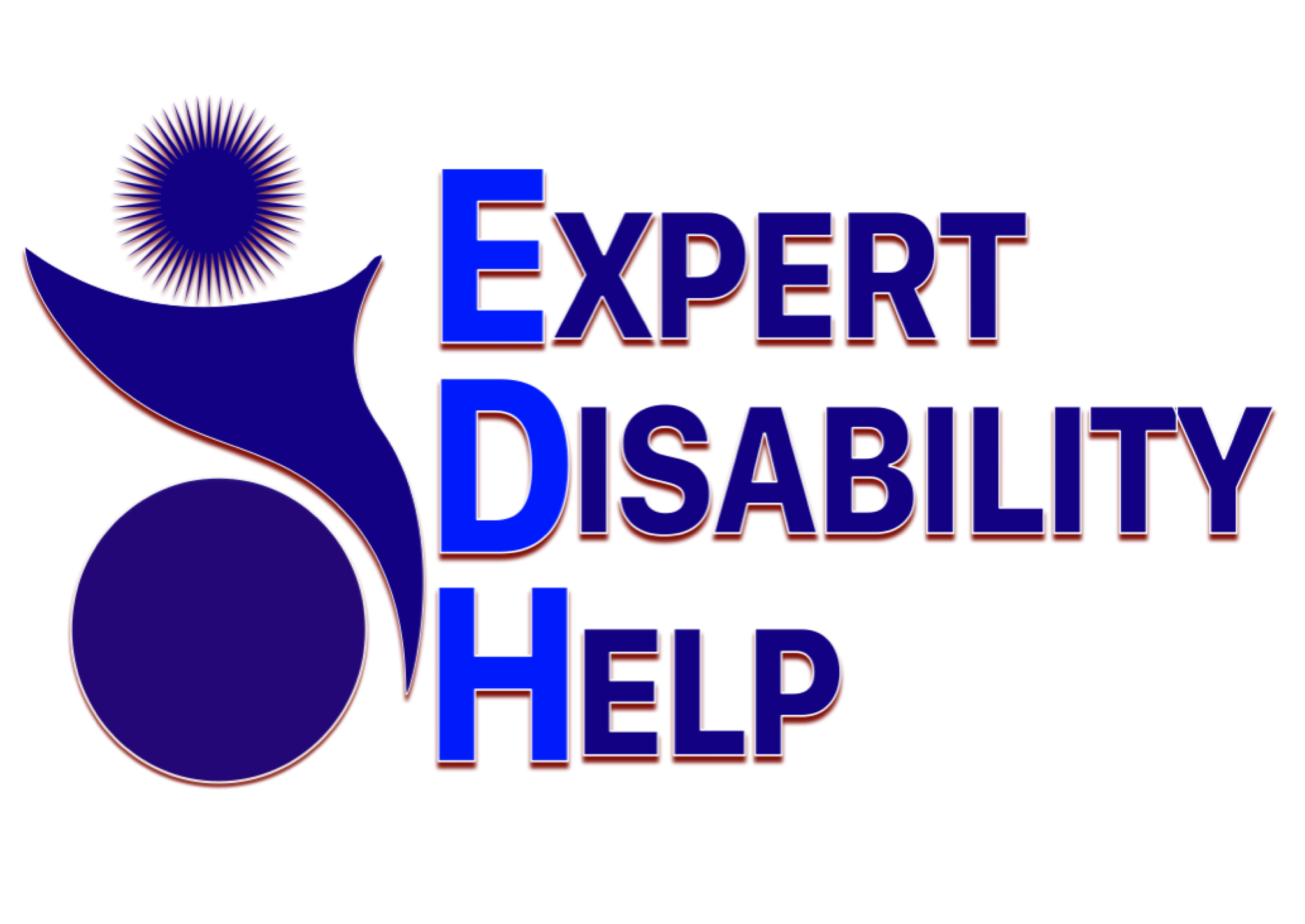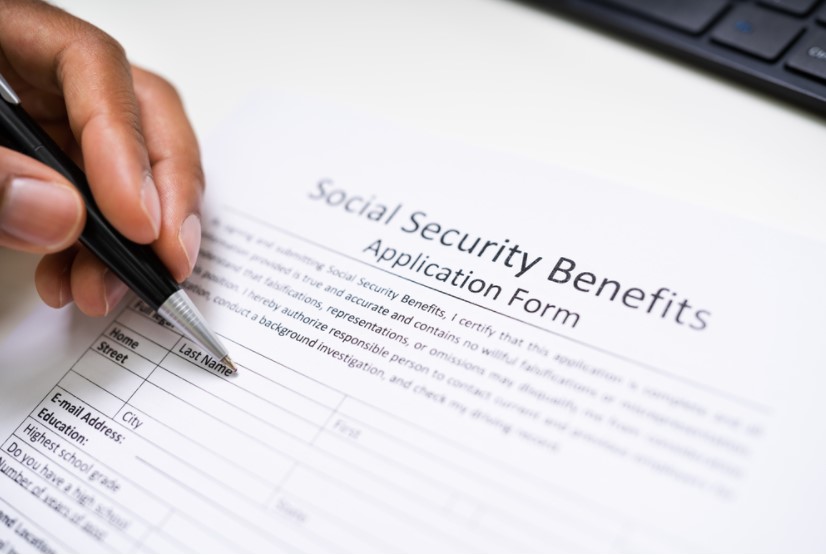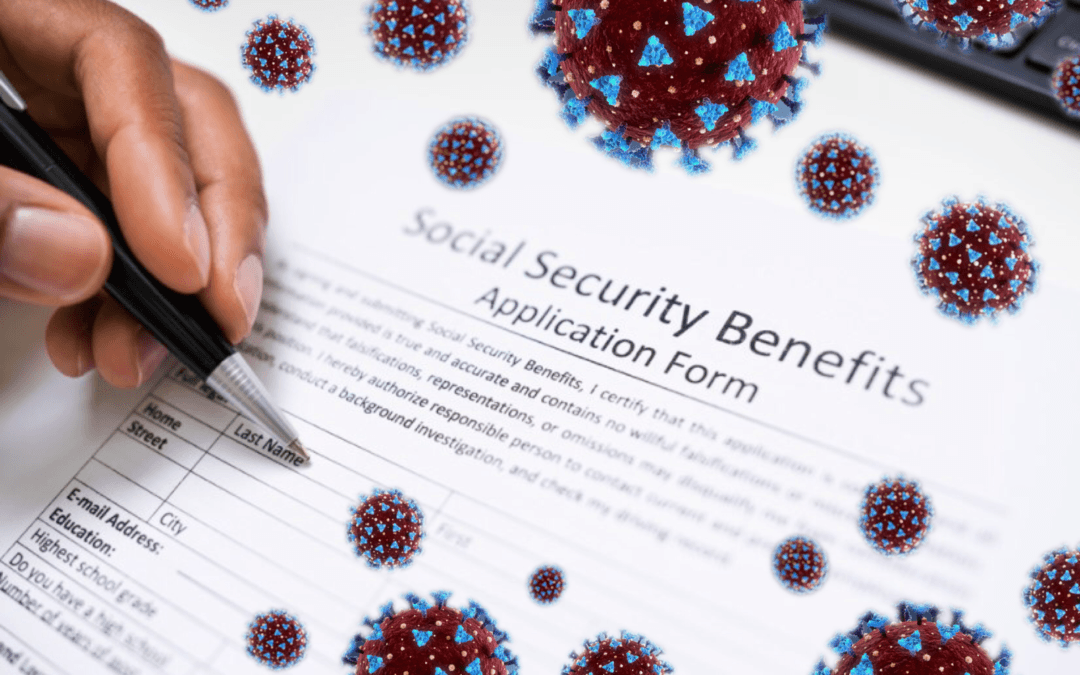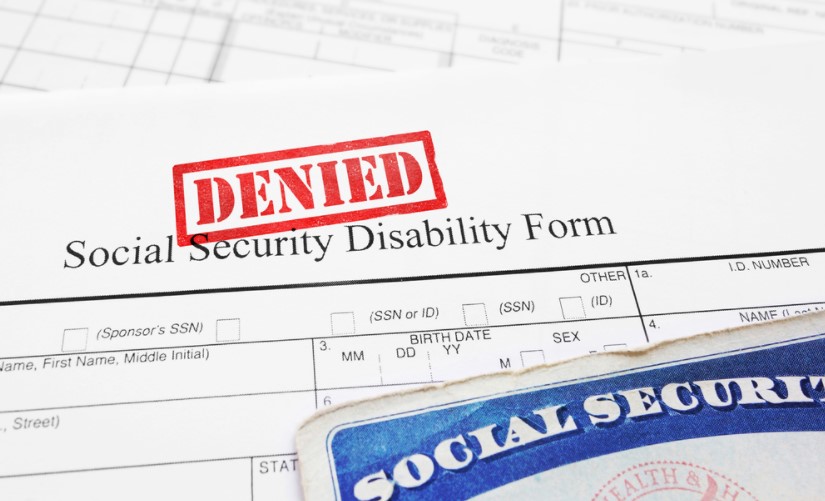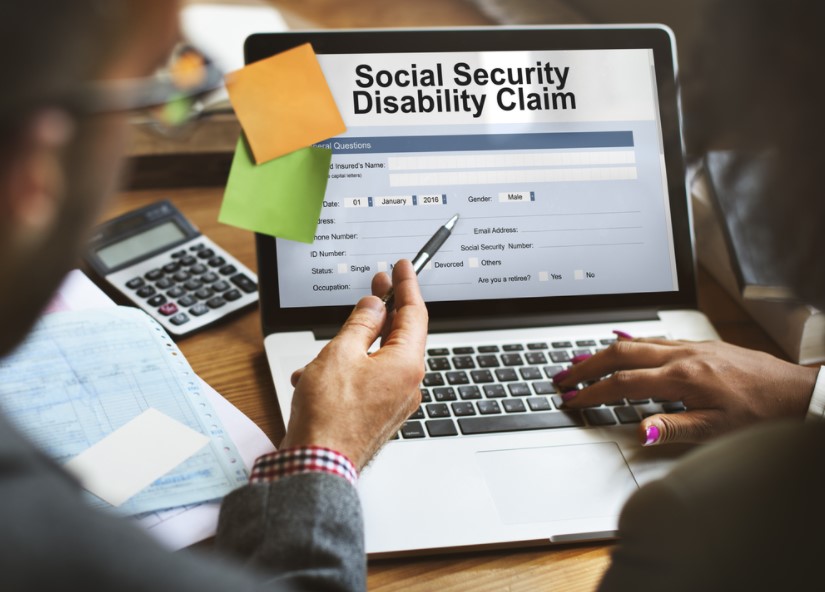Social Security Disability Insurance (SSDI) and Supplemental Security Income (SSI) are disability income benefits administered by the Social Security Administration.
There is no secret that the application process is challenging to navigate and for claimants to receive approval. Denial can cause financial and medical insecurities. If a denial results from your disability claim, the wait can be longer than 150 days.
The “long wait” to be approved for disability is challenging mentally and physically and can create new diagnoses due to the stress and financial difficulties. Applicants can lose their homes, cars, and possessions while waiting. If your finances are reaching catastrophic situations, you should explore options. There are services available while waiting for your disability application to be processed.
The Social Security Administration (SSA) receives millions of applications per year. The ability to get your application approved may take months to years. “The (SSA) is committed to providing benefits quickly to claimants whose medical and mental conditions are so serious that they meet the standards for disability.”
Approval for the initial application process for persons in dire financial circumstances decreases to 10-15%. Mainly because often there is no one to help persons with critical needs. If a case is determined to be a strong case, the Hearing Office will immediately assign acute cases for an on-the-record (OTR) decision review.
The SSA application process was already backlogged. After COVID-19 began in 2020, the process to obtain your disability benefits slowed down even further. Plus, due to COVID-19, more applicants were added to an already overcrowded pool of applicants. Fortunately, SSA has programs that help claimants obtain benefits that can help expedite claims for people in dire need.
SOAR
SOAR (SSI/SSDI) Outreach, Access, and Recovery model is a wonderful program developed by The Substance Abuse and Mental Health Services Administration. This program addresses a critical need in persons experiencing financial and mental insecurities. SOAR has trained managers who help claimants submit completed quality applications quickly, thereby reducing the critical review designation.
SOAR is designed to help persons with serious mental illnesses, substance abuse issues, and co-occurring impairments that can impact mental cognition and further impact the disability claims. Assistance by SOAR can provide and solve so many problems among people who desperately need disability. Disability benefits can save the lives of many applicants.
Quick Disability Determination (QDD)
Quick Disability Determination (QDD) and Compassionate Allowance (CAL) are designated fast-track programs that use computer technology to identify the most severe disabilities.
These programs allow the SSA to expedite the type of particular claims that require immediate assistance. The SSA has a list of online diseases that meet the criteria for CAL conditions. You do not have to do anything but notify Social Security if you believe your medical condition may qualify.
The need for expedited claims is at an all-time high. In addition, certain types of illnesses and financial markets are increasing. Applying for disability benefits was already stressful enough without adding socioeconomic factors. Fortunately, programs are available to expedite your claim if your situation reaches such a dire need status.
If your financial hardships become life-threatening, you have to reach out to the SSA. To survive, applicants have to have acceptable food, transportation, housing, and the ability to receive medical care.
You can qualify for disability benefits before your application is approved if your application qualifies under the Dire Need status. An alert needs to be placed on your application. Often the computer software program may make the incorrect correct recommendation so it is always wise to check the status of your application.
Interim Public Assistance Program (IPA)
This program was previously known as Public Assistance and had to be applied for in the state where you live. To qualify for IPA, you have to apply for SSI benefits and may be able to get direct cash payments. Although these payments may be modest, they can benefit persons in need. First, however, you must meet all the Adult Public Assistance criteria.
IPA is a state program that pays a limited amount of monetary benefits to those without children. IPA is described as a “form of public assistance.” These programs in most states fall under the Department of Social Services or the Department of Health and Social Services. These programs are designed to provide temporary monetary benefits. The benefits can be used to provide shelter, medication, and healthcare services.
Before you receive Interim Public assistance, you must fill out a Social Security Insurance (SSI) application. You will have a better chance of qualifying for these benefits if there is a strong likelihood that you will be eligible for SSA disability benefits.
You may also have to qualify for a state public assistance program. In addition, you may be eligible to receive cash benefits. If you qualify, you must agree with the agency supplying the funds. In addition, you must agree to repay the funds. These funds must be repaid with the funds from the back payments that you receive from the SSA.
Dire Need(DN)
This is a program that is not well known to most disability applicants. Suppose you have already been denied disability benefits and are waiting for your claim to be processed. Your claim can be expedited. It does not require action on your part, with the exception you have to contact your local Office of Hearing Operations (OHO). The OHO staff may designate your case as critical.
What is a dire Need? When a claimant alleges food insecurity and cannot obtain it, or lacks medicine, and cannot get it. Furthermore, if the claimant indicates that access to necessary medical care is restricted because of a lack of resources suggest a dire need.
Dire Need is also considered if the claimant lacks shelter ( e.g., without utilities such that the home is uninhabitable, is homeless, expiration of a shelter stay, or immediate eviction or foreclosure with no means to remedy the situation or obtain shelter. Further information provided that the Supplemental Nutrition Assistance Program (SNAP) falls under Dire Need.
In order to qualify for DN, a letter needs to be written describing your circumstances, by you or someone helping you. This letter needs to be addressed to your local Office of Hearing Operations. After a denial, a letter needs to be written asking for an administrative hearing to be quickly scheduled.
Each state has different requirements, so make sure you explore the requirements in your particular state. It is best to conduct requests via telephone initially so that you will receive the best instructions.
ON The Record Decision (OTR)
Once you have provided enough evidence that establishes that you are medically disabled, you have the right to request an OTR review rather than waiting for an administrative review hearing.
An OTR decision allows you to skip the Administrative Law Judge (ALJ) hearing and eliminates delays over one year and five months wait time. However, each state has different time frames for an ADL hearing, and you need to be aware of the timeframe for your condition.
If you wish to have an OTR hearing, you have to contact the Office of Hearing Operations (OHO) nearest to where you live. Unfortunately, you have to wait until after you have received a denial to request an OHO hearing. Then, OHO will review your request, grant, deny or ask your attorney questions if you have one.
If OTR grants your request for a hearing, an ALJ will write an opinion approving or disapproving your disability application. If your request is denied because there isn’t enough information, your application will proceed to regular ALJ hearings.
Requesting an Attorney-Advisor Decision
It is possible to get a decision from an attorney that the Social Security Administration employs. If you can prove that the SSA made a mistake by overlooking necessary evidence, if there is significant new evidence regarding your claim, or if there has been a change in the law that may impact your claim., provide this information to your appeal.
You can request an attorney advisor by contacting the OHO office. If possible, it would be advisable to present any new medical information that you might have since you first sought disability benefits. Several things may have changed.
The attorney advisor might want to contact you regarding your claim. It is always wise to have a good contact number and make sure SSA has your best contact number.
The Social Security Administration (SSA) appeals operation is one of the world’s largest administrative judicial systems. SSA issues more than half a million hearings and appeals each year. Under the Office of Hearing Operations (OHO), Administrative Law Judges (ALJ) conduct hearings and issue decisions.
If you are successful, you will receive a letter that is “fully favorable.” If your decision is not favorable, it will go on to the ALJ. If there is a question about the onset date, you have a chance to accept what the attorney offers and proceed to have your hearing before the judge. Most claimants decide to accept the offer from the SSA
Quick Disability Determination (QDD)
This program uses a computer-based predictive model to screen applicants where it is highly likely that there will be a favorable decision. Having medical evidence available speeds up the process. DDS is an excellent process to identify eligible claimants early on to expedite processing,
Compassionate Allowance List (CAL)
The CAL process identifies diseases and other medical conditions that invariably qualify under a listing of impairments. The CAL initiative helps reduce the waiting time to reach a disability determination.
If your disabling symptoms are severe enough and you meet the qualifications for SSDI or SSI, you will be able to get benefits much quicker by incorporating cutting-edge technology. Social Security maintains a list with 200 or more conditions. It is best to file these cases electronically.
These conditions are maintained in a Compassionate Allowance List (CAL). If your medical condition is recognized as being on the list, you may be awarded benefits in a matter of days or weeks instead of years. New requirements are continually added.
You should alert the SSA when you apply if you think your condition qualifies as a Compassionate Allowance. If you have access to your medical records, you can speed the process even more. The list is on the SSA website.
Terminal Illness
A TERI designation may be added at or before the hearing level. TERI designations are monitored by the Office of Hearing Operations (OHO). For example, suppose you have a terminal illness and meet the nonmedical qualifications for SSDI/SSI. In that case, you should be able to meet the terminal illness criteria under a program called TERI. This program allows the SSA to expedite specific applications when an applicant has a terminal illness. You should notify SSA that you think your condition qualifies for the TERI program like the CAL program.
If you are receiving hospice or inpatient home care, notify the SSA when you apply. If you have a copy of your medical records, your claim will move quickly. The presence of TERI criteria does not mandate a finding of a disability. However, an adjudicator must still evaluate the TERI claim under the sequential evaluation process.
Presumptive Disability (PD)R
The SSA has a list of conditions considered for disability before an official approval has been allowed. The program is called Presumptive Disability. Conditions like End-Stage Renal Disease and Amyotrophic Lateral Sclerosis, low birth weight, and intellectual disorders are all considered PD.
These conditions are expected to qualify immediately for disability. You will receive immediate benefits for six months while the qualification process is going on. If for any reason, your claim is denied, you will not have to pay the money back.
Department of Vocational Rehabilitation (VR)
It could be helpful to contact the department of VR in your particular state. The VR can assist you in different ways that could benefit your claim.
One of the benefits could be an examination by a VR physician to determine the extent of your limitations. The examination performed could be helpful in your disability claim. In addition, information from rehabilitation counselors can also be beneficial.
Veteran 100 Percent Permanent and Total (VPAT)
A case is designated critical when the claimant has received a 100 percent permanent and total (100% P&T). If you have applied for disability, you can request special consideration through the OHO if your condition began while you were in the service. Your claim will be expedited. In addition, veterans can receive other benefits from the VA and Social Security Administration.
Military Casualty/Wounded Warrior (MC/WW)
A case is designated critical “when the claim involves any current or former member of military service if the member sustained an illness, injury, or wound, who alleges a physical or mental impairment regardless of how the impairment occurred, or where it occurred (the US or on foreign soil) and sustained the impairment while on active duty status on or after October 1, 2001.”
Military Casualty/Wounded Warrior (MC/WW)
NOTE: The above information changes quickly. Since COVID-19 began some offices have closed as of November 2020., example, the Hearing Office Locator and Office of Hearings Operations. You can contact the office at the Toll-free 1-800-772-1213 Monday through Friday 8:00 am to 5:30 pm EST.
You can contact a member of Congress for your state. The Congressperson cannot make any demands or will not be provided with the medical aspects of your case. However, contacting your Congressional Representative helps to let SSA know that there is Congressional interest in your claim, and your claim will be designated “Congressional.”
Contact the local Social Security Office for reconsiderations, hearings, and Appeal Council reviews for the most up-to-date information. In addition, there is a wealth of information on the SSA.gov website. The data is updated frequently.
